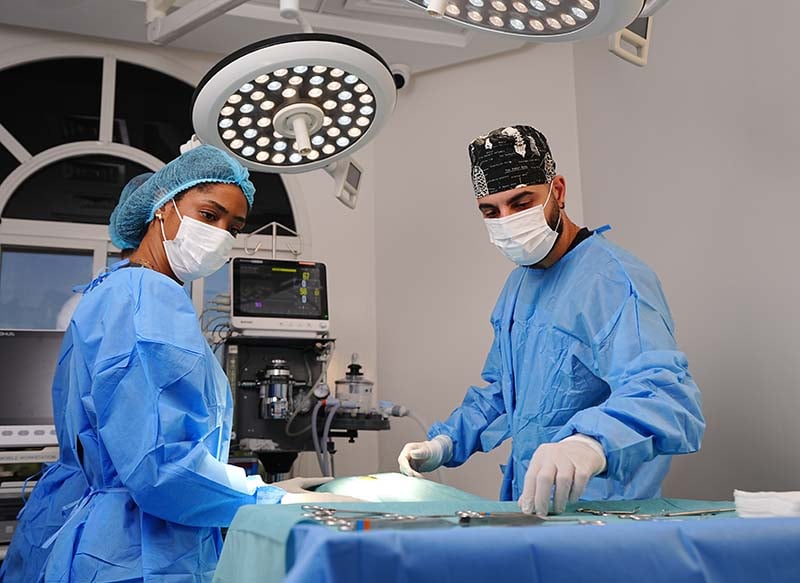Your Trusted Partner
in Your Pet’s Long Term Health
The decision to have your pet spayed or neutered is one of the most responsible actions you can take as an animal owner. Not only do these common procedures prevent unwanted litters, but they also help promote better overall health, longer life and improved temperament in your pet.
Our advanced surgical techniques, hygienic standards, and attentive follow-up care help ensure every pet has a comfortable and safe experience from beginning to end.
Why Spay or Neuter Your Pet?
The benefits to pet health are many and well-documented. Sterilization offers more than just population control; it provides other significant health advantages to your pets:
Learn More About “Spay & Neuter”
Cat Sterilization in Dubai
Cat Sterilization in Dubai
The sterilization of large numbers of wild and pet cats in Dubai makes it a necessity.
- Castration of male cats reduces aggression and urine spraying behaviors
- Spaying of female cats eliminates the heat cycle, prevents infections of the uterus and cancers of the reproductive system
Modern Vet provides sterile cat surgery in the safest manner possible with total post-surgical recovery guidance.
Our Cat Spay and Neuter Package includes comprehensive surgical and monitoring and post-operative care advice, plus special discounts on select future services that support your cat’s ongoing health.
Dog Sterilization in Dubai
Dog Sterilization in Dubai
Spaying or Neutering of dogs is responsible dog ownership.
- Neutering helps with less aggressive behavior, less roaming, and mounting.
- Spaying helps prevent uterine infections & breast cancer.
- More calm, safer & more trainable.
Our vets use a safe anesthetic protocol for all of our procedures and will provide total post surgical care.
Our Dog Spay and Neuter Package includes comprehensive surgery, post-operative monitoring and support, as well as a range of additional services at preferred pricing.
Now Offering: Laparoscopic Spay
Laparoscopic spay is an advanced, minimally invasive form of female pet sterilization — using “keyhole” techniques with small incisions and a camera to precisely remove the ovaries. As a result of this technique, less trauma to the tissues occurs, which results in reduced post-operative pain, swelling and bruising when compared to traditional surgical methods.
Benefits of laparoscopic spaying
When puppies and kittens undergo laparoscopic spaying at ModernVet, they will receive one complimentary bag of Hill’s Science Plan recovery food.
Adult pets are not eligible for this food offer.
Meet the Team and Schedule your Appoinment
Modern Veterinary Clinic is the UAE’s only 24-hour multi-specialty vet hospital. What truly sets us apart is our team of highly qualified specialists, all dedicated to one goal, keeping your pets healthy. With a multinational team, years of experience, and many successful treatments, you can trust that your pet is in safe hands with us.





